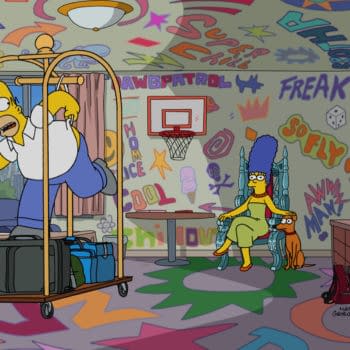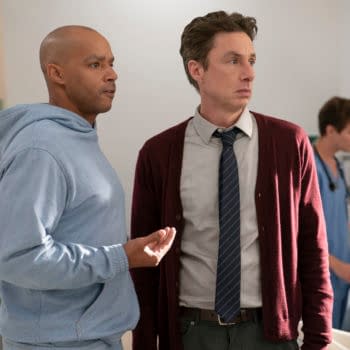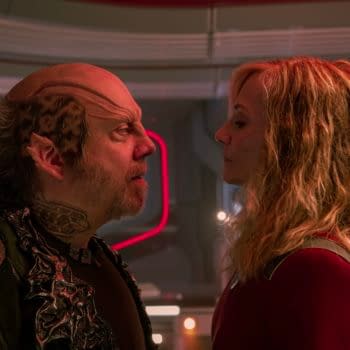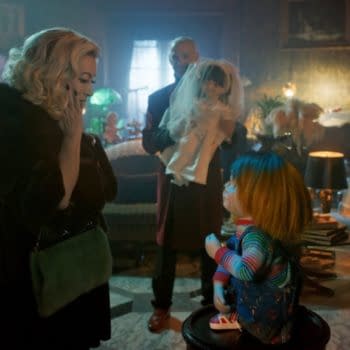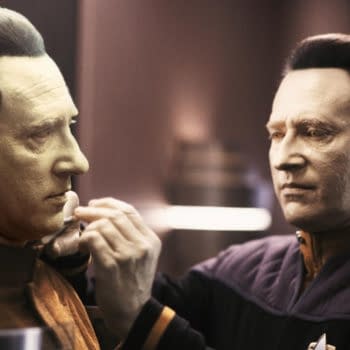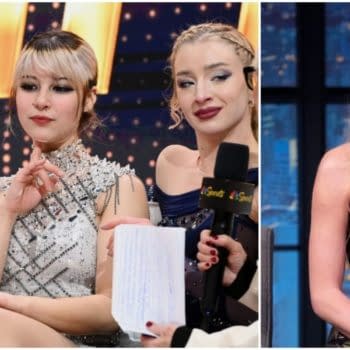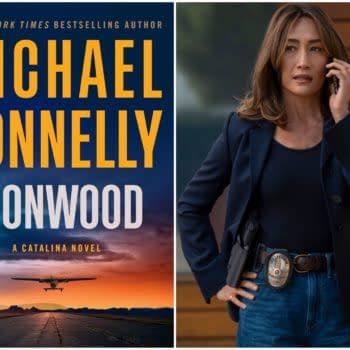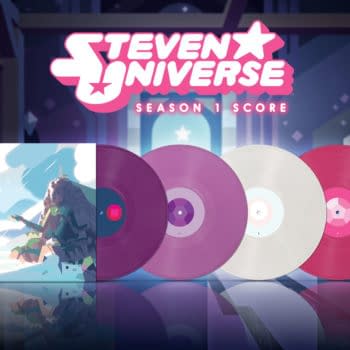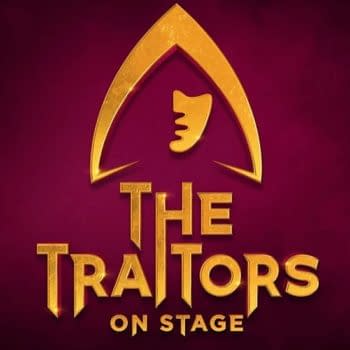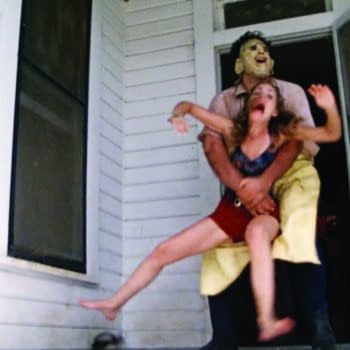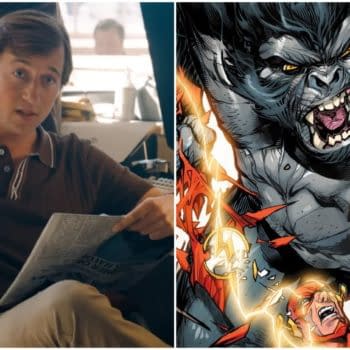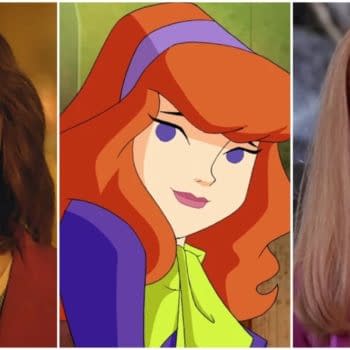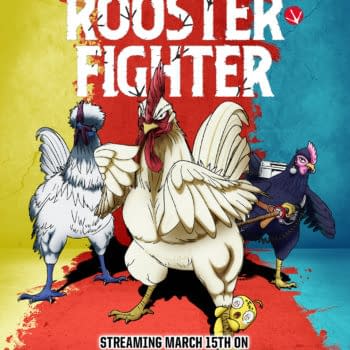Posted in: Books, Paramount+, Pop Culture, Star Trek, TV | Tagged: Deep Space Nine, Nana VIsitor, star trek
Star Trek: Nana Visitor on DS9, Lower Decks, Franchise's Female Legacy
Nana Visitor (Star Trek: Deep Space Nine) spoke with Bleeding Cool about her career and book Star Trek: Open a Channel - A Woman's Trek.
Nana Visitor has been active in Hollywood for nearly 50 years. The actress made her on-screen debut in the 1976 series Ivan the Terrible. Before landing her signature role as Major, and later Col. Kira Nerys on Star Trek: Deep Space Nine, Visitor established herself on episodic television with roles on some of the biggest shows like Ryan's Hope, The Doctors, Hunter, Remington Steele, The Twilight Zone, Knight Rider, Highway to Heaven, MacGyver, In the Heat of the Night, Night Court, L.A. Law, Thirtysomething; Murder, She Wrote, Empty Nest, and Matlock. When DS9 ended after seven seasons in 1999, she remained active with diverse roles in comedy and drama with appearances on Dark Angel, Frasier, CSI, Battlestar Galactica, Wildfire, Friday the 13th (2009), Castle, Family Guy, and Ted 2 (2015).
Visitor, who reprised the role of Kira on the Paramount+ animated comedy series Star Trek: Lower Decks, shifted her attention to her book, Star Trek Open a Channel: A Woman's Trek from Insight Editions celebrating the women of the Star Trek franchise from The Original Series to Strange New Worlds with interviews from Kate Mulgrew (Voyager), Terry Farrell (DS9), Denise Crosby (The Next Generation), Mary Wiseman (Discovery), and Rebecca Romijn (Strange New Worlds). Visitor spoke with Bleeding Cool about how she was approached to do the book, DS9 allowing her to do things as an actress she didn't get from her previous roles, navigating the attitudes toward women in Hollywood, Paramount+ shows, if she'll return for Lower Decks final season, and how she felt the Star Trek franchise shaped her career.
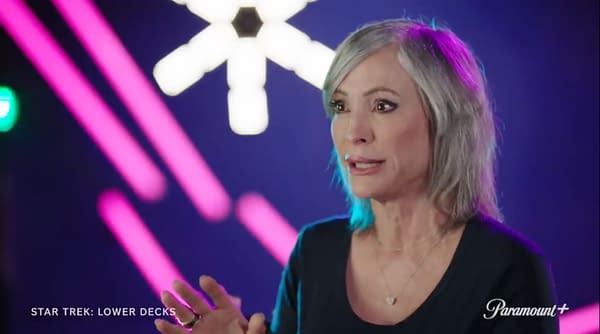
Star Trek: Nana Visitor on Chronicling Her Journey and Women's Culture in the Franchise
Bleeding Cool: What inspired you to write Star Trek: Open a Channel: A Woman's Trek, and how long did that journey take you?
I wasn't inspired to write a book. There were three men. One of them, book publisher Ben Robinson, wanted a book about the women of Star Trek and thought it would be better if one of the women of Star Trek wrote it instead of them. I said, "Yes," but the idea of the book was different. At that time, what inspired me to write 'Open a Channel' was the whole journey of looking back at what my life was like, how the culture of the time affected me, hearing how the culture affected all these women I interviewed, and what the book meant to so many people. I got to interview those people as well. The book came out of the inspiration of looking back at my life and talking to all these remarkable people.
How do you compare your experience on 'Deep Space Nine' to the roles before you landed the series? What were the environments like then? Did you feel a chip on your shoulder and more pressure to succeed in Hollywood as an actress?
There wasn't a chip on my shoulder, but there was an understanding it was different for me because I was a woman. Women at that time and I'll certainly speak for myself, I trained myself to know how to stay in my lane so well I would do it unbidden, even if I took more opportunities. I wouldn't do it because that's not what you do here. This is how this culture works, if you want to succeed, you follow the rules. [On 'DS9',] The role [of Kira Nerys] was different from anything I had done before, what I had done before, except for a couple of theater roles which are traditionally more expanded and complex for a woman, were simple: a girlfriend, a mother, a wife. I was dead, a victim, or I was a killer, but usually, I served to make people understand something more about the male character who was the star of every show. Here was a role I got where my character made mistakes and had a past, and it wasn't all shiny and pretty. I had love relationships. It was a full, even though she wasn't human, a full-on human, and to play that was a gift to me.
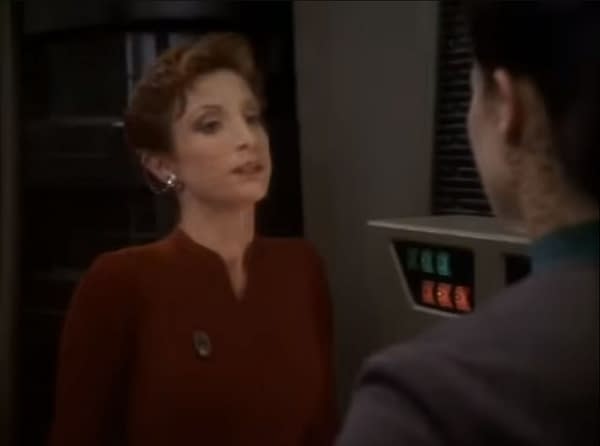
The framing of the narrative of women in Star Trek, there were stories about a struggle for equality on set. I want to touch upon the first two Star Trek shows with 'The Original Series and 'Next Generation' hearing stories about those issues. For example, the pilot ['The Cage'] had originally had Majel Barrett Roddenberry as the first officer before that was changed. You also had the departure of Grace Lee Whitney [from 'TOS']. When you get to TNG, Denise Crosby, and Gates McFadden have those early-season issues with male writers and showrunners. Even Nichelle Nichols had a desire to leave TOS. Which of these stories surprised you the most in your research?
I read Grace Lee Whitney's book ('The Longest Trek: My Tour of the Galaxy') to understand her because obviously (with her passing in 2015), I couldn't interview her. That was so many women's stories, and, in the book, she says, "Look, I didn't play it smart, I wasn't smart, I didn't want to sleep with people. I didn't want to. I should have gotten close to power, and I didn't and hold it." That was so plainly written in her book it made me sad there had to be a negotiation.
You couldn't assume respect and safety that there had to be. Here's the thing: when you're acting, you're using your prefrontal cortex. A lot of it, you're doing multiple things at once. You're looking at a wire on the floor. You're anticipating your next line and thinking you're in the moment. You're feeling with another actor, and if you also must use any part of your brain to go, "Oh, God, this guy who just walked on is my boss, there's an issue, and he wants something from me!" Or if someone treats you with a biased attitude and you feel less than or makes you suddenly aware of your body when you want to be in your brain, it makes life much more complicated and harder. Those are the things women in the 60s took for granted, where they had to manage not only their feelings but other people's feelings and their careers. They had to manage what they wore and be responsible for how everyone responded to them. That doesn't leave you much time for creativity or calm [laughs] either thing.
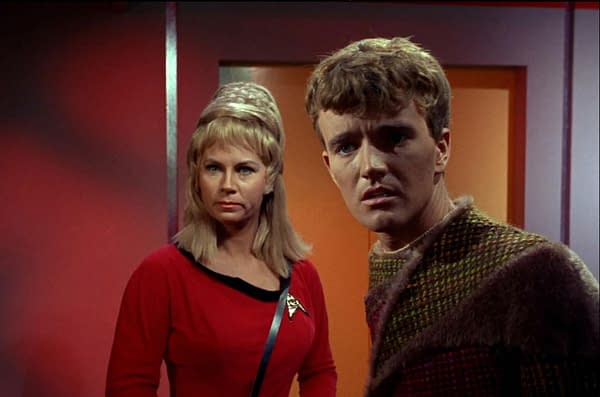
Were there any problems you encountered while doing the book? Did you struggle to balance the inspiration from the struggles?
I see what you're asking. First, what I didn't say earlier is I [wrote] it over Covid, so sometimes that worked. Sometimes, people would agree to come to my house and be interviewed or elsewhere, one-on-one. We filmed all of them, so it seemed safe at the time. We wore masks when needed, but there were so many I couldn't get because of that. Some were done over Zoom, and that worked out well. I had the most issues with me, and I had such a desire for a good narrative of my life that I remember. There's this song [by Sara Bareilles called "Brave"], "Say what you want to say and let the words fall out." Just be free and I would go upstairs because I'd find myself caught, I blast that get on my bike, and cry. It was hard for me to be honest about my experience, and I've been honest about my experience, and that was the hardest part. CBS looked at the book, read it, and didn't say, "No, you can't say that" or "No, that's no good." I wasn't out to rip anything down, but I wanted to look at it. My eye has been educated about the current culture, but I wanted to be aware of the culture of the time and how we all saw things. I wanted to be honest about how I saw things then, which is different from now.
Given what Star Trek has explored on network TV and the syndicated area, were you surprised at some cognitive dissonance that emerged with the Paramount Plus shows?
Maybe the cognitive dissonance you're talking about could be that there started to be enough Star Treks out there so they could serve different groups, and it wasn't the group it originally served. People didn't understand there were many more diverse groups, how many women, how many black women were watching the original show and getting huge inspiration from it. That might have been more of a silent group watching, or nobody asked them, but they were there and watching.
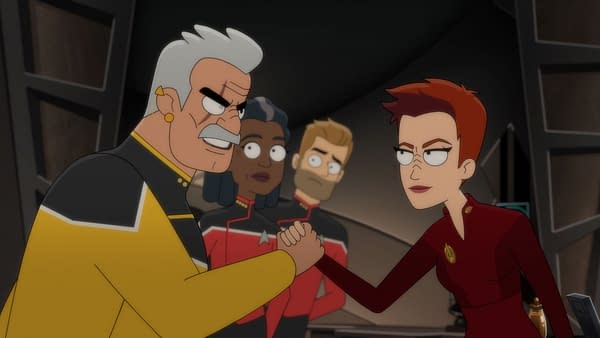
How did you feel when you reprised Kira for 'Lower Decks?' How did Mike McMahan honor Deep Space Nine's legacy? Will we be seeing Kira return for the final season?
I doubt it because they must have done it already. I wish I could have had an opportunity to play her again, but Mike McMahan, I interviewed him. Here's the thing: nothing can happen for women or actors or anything unless…I mean, it's a very hierarchical business, and the person at the top is going to be the one who decides what comes through. You can have as many women writers as you want writing for women, but if the person at the top isn't saying, "Yes, this is what I want!" It's not going to come through. He is number one, I'd say, as a humanist, like Gene Roddenberry was. He wanted those stories and what was so great, what I appreciated, because when they asked me to come on, I looked at the show to see [and thought], "It's so affectionate." We are at a point where the people who watch the original shows have grown up and are making careers out of this show they have so much love and respect for. All the Easter eggs and humor were done with such respect. I found him as a creator who I hope goes on and does much more.
How do you feel the franchise has shaped your view on fame?
Fame…it's the ideal situation because I have the coolest group of people who know who I am. I'm free to walk around the rest of the world without any issues because these people are engineers, astronauts, astrophysicists, teachers, biologists, and people in steam, very much so, who are avid fans. They're the greatest group to deal with, and I'm proud of my community. If fame was huge for me, it would have been a detriment to how I like to live life.
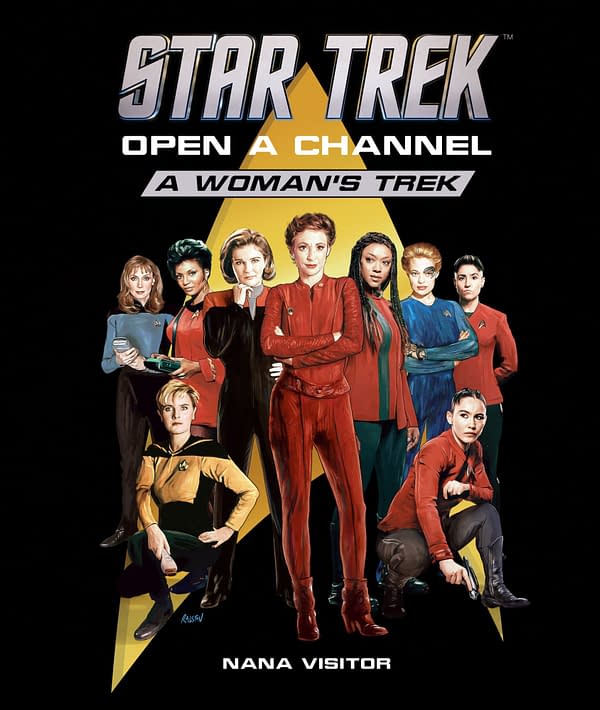
Star Trek: Open a Channel: A Woman's Trek is available for preorder and release on October 1st.






